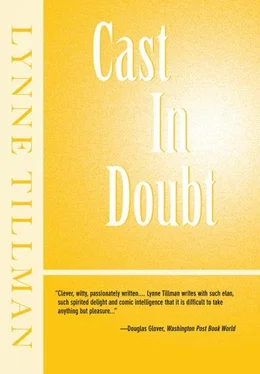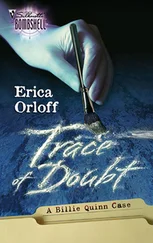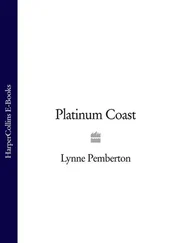All roads lead to Rome, I caution myself and chortle aloud. It was the Venetians who were here ages ago, not the Romans, and they settled in Crete ages before the still-dreaded Turks conquered it, and would an ancient Venetian have claimed that all roads lead to Rome or not? Or just when would a Venetian have begun to claim that?
I journey along the coast road, then turn south past Galatas, though I could have gone the other way, in the opposite direction, which would have been faster. By taking the road I have, I avoid being in the proximity of Souda Bay, where the naval installation is, and I would rather, and do, travel miles out of my way just to bypass it. I detest that part of my Sunday morning when the naval-band from Souda marches around our Peaceful harbor and makes a ruckus that could wake the dead. I am so glad that the military government is out. It is not that the parades halted, but when the colonels were in power, there was an arrogance and pomp to the Sunday parade which it now lacks.
This reminds me of another argument I had with Roger. Though he supported the junta, contradictorily he was dismayed when the monarchy was abolished and King Constantine deposed. In part, I repeatedly told him, the junta had formed in opposition to Queen Frederika and her son, Constantine. Still, Roger likes royalty — the English line in particular. He likes pomp. I have eternally insisted that even an Anglophile such as myself must agree that having a monarch is an anachronism of the most bizarre kind, entirely unsuited to a modern democratic state and a modern mind. Roger claims also to like strong leaders, men of decision. Roger fools no one. But why think of Roger now, as I set off on a new road?
While I don’t care to hurry, at the same time I experience a strong sense of urgency. And too it is in my mind, almost disproportionately, that I must leave myself, and the trip, open to chance. This is a chance operation, I say aloud, in hard-boiled style, and again indulge in a spur-of-the-moment directional decision. I even wonder whether or not I will better appreciate the abstract expressionists after this trip, since it is to be based to some extent on randomness. My perambulating may be a whimsical foray into abstraction. But its randomness is under my control; that is, I am in charge of it. I decide when or if it is this road or that that I take. I am, I tell myself, the agent of change, my own travel agent. After all, even Jackson Pollock, whom Gwen likes better than I — she has far greater sympathy for the barmen, as she calls them — even he, to some extent, controlled randomness through his execution of it. It is not as if anyone at all could have just walked up to one of his gigantic canvases and thrown paint at it.
A stream of cars passes me; sometimes there are many, sometimes few. Cars usually pass me. I drive quite slowly. Carts drawn by horses do not pass me, though. I remember horse-drawn carts in my hometown. They were still in use when I was a child, after all. How strange that is to consider in this day. Greek men on World War II German motorcycles with sidecars overtake me; the Greeks glance at me and my Volkswagen bug with amusement. Were I to have any, my passengers would become infuriated because of my caution and lack of speed, though Helen didn’t when we drove to the mountains that day. But as I am alone, with no passenger, no one to answer to, I am free to do what I please. But why, I wonder, should I be thinking of this condition as a freedom, as if it were rare, when I live alone and essentially answer to no one?
Yannis is there but not there. It is true that I am never unaware of his presence, of his odd and occasionally sinister gaze that can so brutally penetrate and pierce me, my soul, if I have one. His look can pin me to, or in, a moment. It is painful, dreadful. It has to do with one human being being seen by another and one or both being able to understand in that all-too-human instant something intensely peculiar, even deranged, about the other. There can be no recording of the vague exchange, no document left behind, just one’s experience of a naked expression, of being naked, in an impropitious moment. It is chilling and unsettling to be caught unaware. It is probably why many people prefer to live alone. I remember Gwen telling me that a man she was seeing caught her staring at herself in a mirror, as she pushed her hair from her forehead and studied her face. She realized that in that brief moment he discovered something about her, her narcissism, her paranoia, her incessant insecurity — in regard to him as well — all of which she would never have wanted revealed. He didn’t telephone her again, though they had been seeing each other off and on for two years. Gwen was relieved. She felt that neither he nor she could have borne the burden of what had passed furtively between them.
It is strange to break off a relationship in that manner, but then that is the way it happens. The break is sudden and sharp but seldom clean. And, to prove my hypothesis, Gwen is one who lives alone. One Who Lives Alone is another good title. I pull over to the side of the road and jot that down.
Looking at the map of Crete, at the road ahead and the environs, I am struck again by the island’s magnificent geography. Most of the major roads appear to halt in the middle of the island, because of the treacherous mountains. The mountains defy one and all. This is extraordinary country, rugged and violent. Its landscape is unexpected and invigorating. With my eye and finger I trace on the map the many possible courses — possible worlds — from which to select, and decide, again on the spot, to quit the road I have been taking and head toward the coast road again, so as to travel near the sea and around the exterior of Crete. It was what I originally had planned but then for some reason rebelled against, even though it was my idea. At my age it may always be one’s own ideas, however hackneyed, that one rebels against.
I don’t particularly want to drive through the mountains, and of course the roads do come to a halt disastrously and one would have to backtrack here and there, to meet up with the right road, and in a sense one would be much too directed by the terrain. One is by the coast road too, but one does not experience it in just that way. Besides, if Helen were with the Gypsy, or on her own, mightn’t she want to see the beautiful coastline? I start up the car, plot my new course, and turn around, to begin again. The scenery is magnificent.
I wish I could keep my mind on it. I am not one who can keep his mind on what is actually before him; I am more involved in what I see in my mind’s eye. It is prosaic but true. I tend merely to register the physical world, my surroundings, but then, in a matter of no time at all, have in view a whole range of associations — a mountain range, if you will — which looms in front of me, and off I go. I might consider the mountains in the distance, their rough beauty, how purple they appear, but the color purple might lead me to the term “purple prose,” for example, which then always brings to mind Alicia and how Alicia has been written about.
Alicia. I see Alicia when I first knew her. She is young, willowy, graceful, nearly ethereal; her face is before me as if pasted on the windshield. Years ago she took a trip into the mountains, which she did not invite me to join. A friend had arrived from France and she devoted herself to her — another opera singer, I believe. Alicia is a devoted friend, one capable of loving. There are few of those. I easily slide to the opposing concepts, and to Stan-Greenish thoughts, to hate and betrayal. I ponder anew what I have often pondered before. These repetitions are as annoying as they are compelling and absorbing. If Alicia hates Helen, as she seems to, what is the true reason? Has it anything to do with Helen? What exactly are Alicia’s feelings toward Helen? Are they murderous ones? Would Alicia murder Helen? Would Alicia be capable of murdering anyone? And why not? What about Helen? Would she have strangled her sister for her father’s love or his fortune, though he probably has no fortune — a psychiatrist earns well but not spectacularly. He may have inherited a great fortune. Just as I would have if my father hadn’t lost much of his, if there hadn’t been the Great Depression, and if and if. And what of Gwen and Alicia? What of them right now? Where does John sit in the equation between them? Is John sitting or reclining right now, is he recumbent on a bed of silk?
Читать дальше












